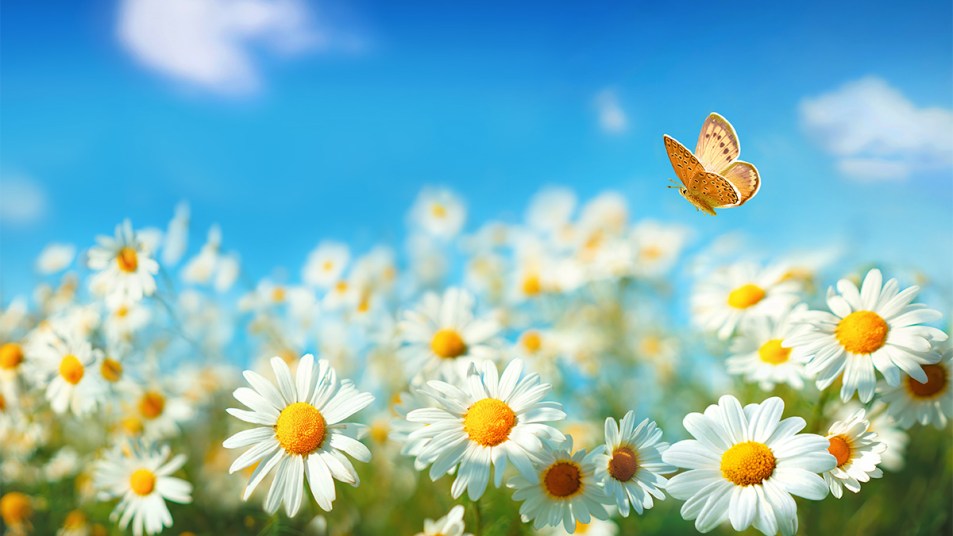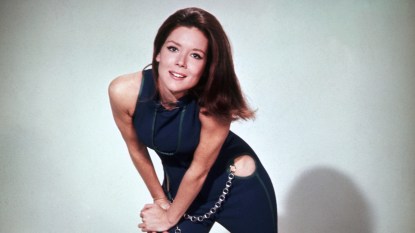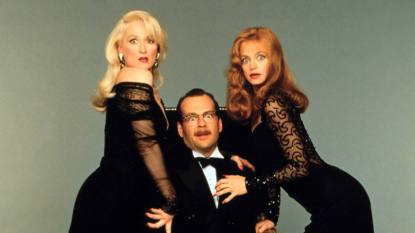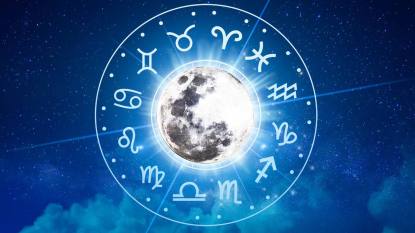Fresh as a Daisy: 5 Spring-Inspired Expressions That Stick All Year Long
Daisies, rainbows, and butterflies — oh my!

Spring starts next week, and it’s always a contender for best season of the year. There’s more sunlight, warmer days, and blooming flowers. But have you ever noticed that spring subtly makes its way into our everyday conversations year-round? Common expressions like “fresh as a daisy” or “social butterfly” reference elements of this joyous time of year while also holding deeper meanings. If you’ve ever wondered how some popular spring sayings originated, keep reading.
Fresh as a Daisy
Flowers symbolize vitality, as does the idiom “fresh as a daisy” — this phrase refers to something (or someone) that is bright or full of energy. The saying was first recorded in a 1778 issue of The Town and Country Magazine from London: “Here I am, sound wind and limb ― fresh as a daisy, came a hundred miles yesterday ― nothing stopt, five-barred gates and all; they took me at one place for the flying highwayman.’” In today’s world, the expression is often used to describe feeling refreshed after a great night’s sleep or a nice shower.
Garden-Variety
While the idiom “garden-variety” sounds lush and pretty, it actually refers to something that is commonplace or ordinary. This term was first coined in 1928 and is still popular in the states. However, a similar idiom called “common or garden” is often heard in the UK, and dates back to 1657. Both expressions were originally used when referring to a plant or animal that was a common type you’d find in a garden. These days, the term is more frequently employed when talking about a plain T-shirt or a not-so-spectacular meal you had at a restaurant.
Chasing Rainbows
April showers often result in gorgeous rainbows. But the phrase “chasing rainbows” is a roundabout way of saying that someone is pursuing unrealistic goals. This idiom is believed to stem from the old folk tale of a person discovering a pot of gold after digging at the end of a rainbow. Since rainbows don’t actually yield gold (that we know of), people in the 19th century who pursued illusory things were called “rainbow chasers.” This saying was also used in the 1917 song “I’m Always Chasing Rainbows” — which the late, great actress Judy Garland sang in the 1941 film Ziegfeld Girl.
Social Butterfly
Do you enjoy meeting and connecting with new people? If so, you might be called a “social butterfly.” The term was first coined in 1867 as a way of referring to those who enjoyed flitting from one social setting to another. “Social” is derived from the Latin word “socius,” which means “friend” or “companion,” and butterflies fly from flower to flower to pollinate, typically during springtime — just like a gregarious person might run around a party speaking to everyone.
The Grass Is Always Greener on the Other Side
Freshly cut grass is a common fixture of spring, but “the grass is always greener on the other side” refers to the quality of always wanting something different than what you already have. This idea can be traced back to a Roman poet named Ovid (43 BC to 17 or 18 AD), who once wrote, “the harvest is always more fruitful in another man’s fields.” The ancient proverb eventually evolved, and its contemporary wording gained popularity during the 20th century with references including the 1924 song “The Grass Is Always Greener in the Other Fellow’s Yard.”
While the definitions and origins of these spring-like sayings don’t actually have anything to do with spring itself, they certainly bring your daily conversations to life — like roses bursting into bloom! Curious about other interesting and unique expressions? Check out these stories on the weirdest words in the English language and wacky origins of common idioms.













